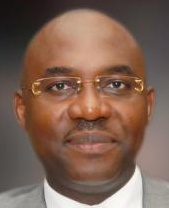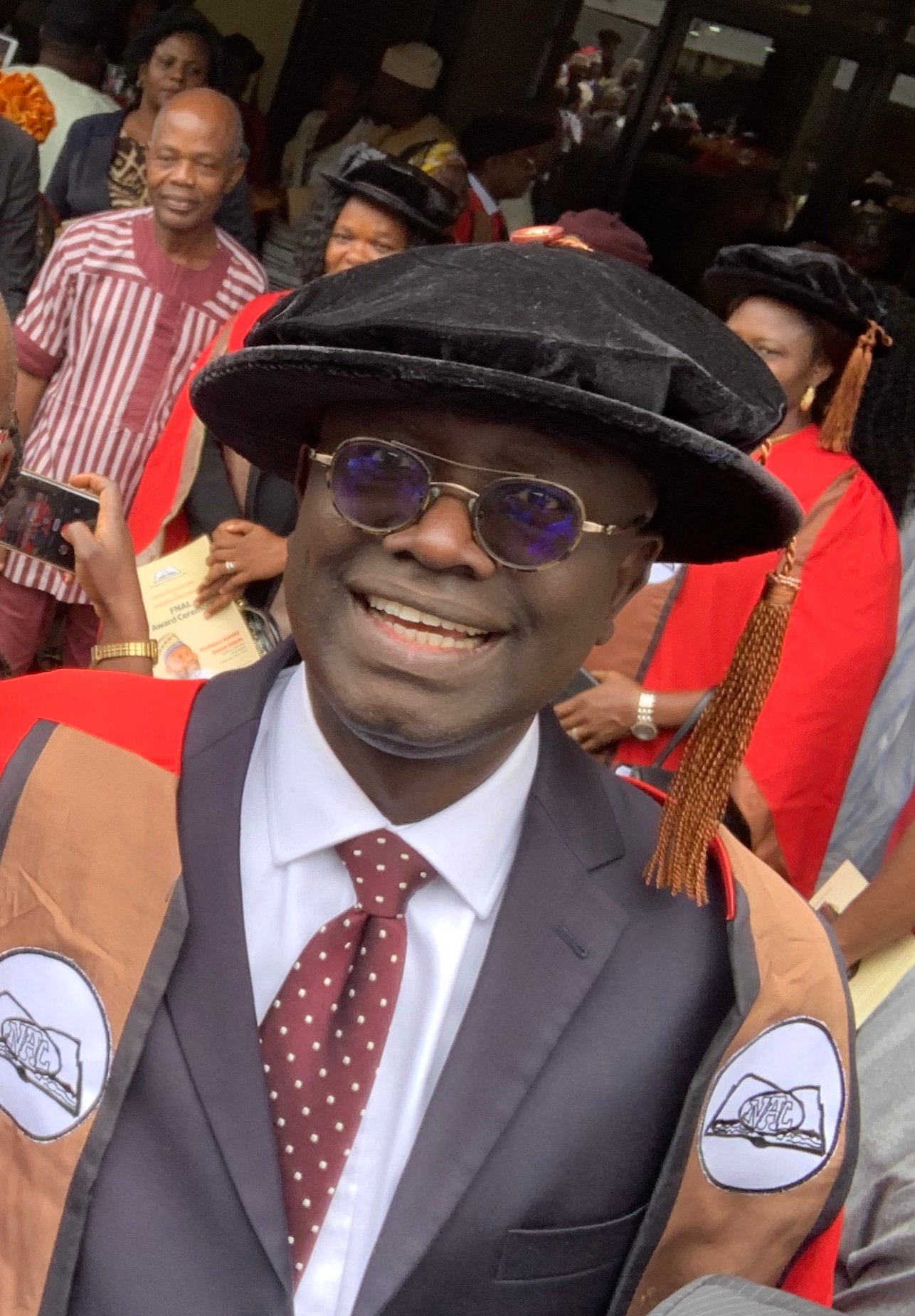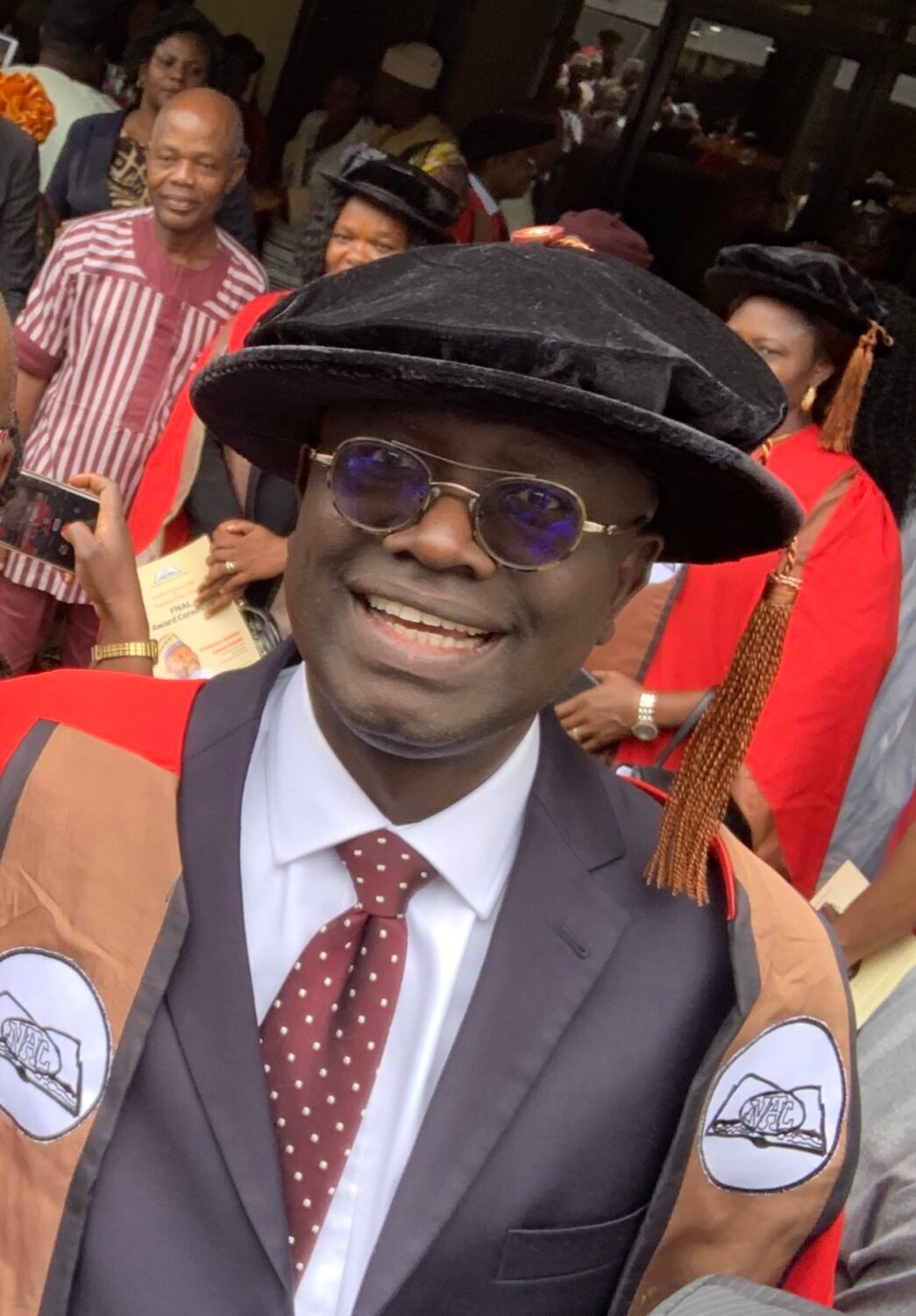For us, the sudden demise of General Sani Abacha in the early hours of June 8, 1998 (Monday) would seem a God-send that effectively cleared the cloud of dark foreboding that had begun to gather the previous day.
Sunday Concord’s front-page lead that weekend had screamed “How Useni and Gwarzo teleguide Parties.” A transparently suicidal gambit at an illiberal time when bullets and bombs were being liberally dispensed against dissents in Nigeria.
By conventional wisdom, when fear envelops the land, certain truths are supposed to be borne only in mind, not told or written in cold print. Those who had dared otherwise under bloodthirsty Abacha were either ended in premature graves, exile or the gulag.
But the Sunday Concord of June 7, 1998, chose to bait the roaring lion in its very den.
Advertisement
The offending story was based on an exclusive interview Segun Adeniyi and I conducted with M.D.Yusuf, the charismatic Fulani prince, who had emerged as one of the few men of iron courage still standing up against Abacha’s maniacal bid to shed his khaki uniform and transmute into a civilian president. It was facilitated by Yusuf’s media adviser, Comrade Abdul Okwechime (who unfortunately passed on last year).
Back in the 70s, as police Inspector General, Yusuf identified with Fela and reportedly spurned official prompting to use the police to harass the anti-establishment music icon. (Additionally, the media legend, Pa Peter Enahoro (Peter Pan), told this writer that Yusuf also once dared Obasanjo, as head of state, by releasing his elder brother, Chief Anthony Enahoro, from custody without clearance from the Commander-in-Chief on the conviction that the charges against the Adolo of Esanland were trumped up.)
Now by 1998, of the flourishing “five fingers of a leprous hand” (as inimitable Bola Ige caustically described the five registered parties), only Yusuf’s Grassroots Democratic Movement (GDM) was proving “recalcitrant” against Abacha’s self-perpetuation aspiration.
Advertisement
As Segun and I drove from the Yusuf’s Ikoyi hideout earlier that week in Segun’s jalopy Peugeot 504 car after the historic interview, our childlike excitement at securing “a world exclusive” was tempered by a new anxiety about whether our editor, Mr. Tunji Bello, would find the courage to run Yusuf’s fiery words ungarnished and in full.
At a time when virtually all the remaining politicians of note were either keeping a “strategic silence” in their respective bases or prostituting in Abuja with Abacha, Yusuf voiced what everyone was scared to say in that interview, taking the murderous regime apart. That the then FCT Minister, Major General Jeremiah Useni, and the National Security Adviser, Ismaila Gwarzo, were the ones dictating to the other four registered parties to adopt Abacha as the sole presidential candidate in a poll whose exact date was yet to be announced.
Of course, publishing such an uncomfortable truth when even Abacha’s own deputy, Oladipo Diya, and several other Generals were on the death row over an alleged coup plot, was like jumping into the lion’s den. Predictably, Abacha and his death squad were livid at Sunday Concord’s effrontery. As readers rushed to buy the copies at newsstands across the country that day, words soon reached us from usually reliable security sources, warning us to await a “reprisal.”
Then, suddenly, death preempted Abacha.
Advertisement
For Segun, it was obviously yet another close shave with Abacha’s murder gang. A few months earlier, he was abducted in the dead of the night by armed operatives from the then most dreaded DMI (Director of Military Intelligence) from his Surulere, Lagos home. They had scaled the fence, broken the window and whisked Segun away in his pyjamas.
His offence? His uncle, Chief Cornelius Adebayo, a wanted NADECO activist, had sent him a letter from exile. The courier was stopped at the land border, and the epistle was intercepted.
Even more horrifying was Segun’s ordeal later at the DMI facility. Left in his nightie all day without food or water, it was already nightfall when the feared lord of the acclaimed torture house, Colonel Frank Omenka, directed the “guest” be brought before him. And there was a comical twist to this Stalinist character: an oversized tobacco pipe hung from a corner of his mouth, with bulging eyes peering menacingly over a pair of reading glasses perched precariously on the tip of his nose.
On that fateful day, Omenka did not forget the last rite of his accustomed torture tactics: pulling a loaded pistol and placing it on the table ominously before asking Segun the first question: “If you tell me a single lie today, I’ll just waste you right away.”
Advertisement
The foregoing incidents are recalled today not just to recognise Segun’s heroic role in Nigeria’s democratic journey in the 90s but also as a cautionary reminder to the tribe of overly overexcited online trolls, particularly those probably too young to understand the titanic battle fought to rid this country of military despotism before 1999. At some point in the not-too-distant past, some people put their lives on the line for the freedom of expression which many now sometimes abuse or take for granted.
Soon after Segun’s encounter with the DMI, Mr. Sam Omatseye, Sunday Concord’s deputy editor, was similarly flagged by Abacha’s goons at the Murtala International Airport in Lagos while trying to catch an international flight. Fortuitously, one of the assailants turned out to be a lover of Omatseye’swritings in Concord. He took pity on him. So, while others looked away, he smuggled his literary idol to the aircraft’s door, beyond the reach of those assigned to capture him. That marked the beginning of Omatseye’s subsequent forced exile in the U.S.
Advertisement
Well, as is often the case, almost thirty years later, we are now celebrating Segun’s life at 60, while Omenka is enrolled irreversibly in the nation’s hall of shame. (In fact, the one-time Pharaoh of DMI reportedly bolted from Nigeria like a rat soon after Abacha died and was last seen in Brazil in a pathetic condition.)
In a tribute he personally signed on Segun’s birthday on November 6, President Tinubu aptly defined Segun’s journalism in the following words: “As a journalist and one of our nation’s most-read columnists, you have set the pace for disciplined conversations and informed commentary. You have also remained a significant voice and conscience of many Nigerians through your dispassionate treatises on developments in our nation.
Advertisement
“I commend your dexterity, brilliance, and knack for excellence, clearly evident in the many best-selling books you have authored. You are one of our nation’s prolific chroniclers, and the fourth estate of the realm is fortunate to have you as an esteemed member.”
Indeed, on a personal note, over the past three decades, life has brought me a circle of friends who have stuck closer than biological brothers. I count Segun among this special clan, who collectively offer me a warmth greater than the comfort otherwise provided by all the fabrics of the world, in good and bad times. It was a friendship sown by the Concord newspaper, which has grown into a kinship.
Advertisement
Under Mr. Bello as editor, the uncommon chemistry we both shared in Sunday Concord made everyone refer to us as “twin brothers”, despite the wide age difference. Omatseye found another mischievous alias for us, “Passion and Prose.”
The only province we both differed incontestably was “OPEC”. As a teetotaller, Segun never came close to or dabbled in proceedings that went beyond the beverages meant for very young adolescents.
Comparatively, the 1990s were not the best time to work in Concord, as our publisher, the legendary MKO Abiola, was languishing in Abacha’s solitary confinement over the June 12 incident.
Aside from a most hazardous working climate then, pay was no longer regular, unlike the pre-June 12 days when Concord offered arguably the best salaries and working conditions in Nigeria’s media industry. But Segun, just like several other journalists, remained dedicated and loyal.
When he married in December 1998, for instance, I was his Best Man. Four years later, he was my Best Man, with Festus Keyamo as co-Best Man.
Like a protective elder brother, Segun was also my advocate in amatory affairs for years. He never gave up on me, despite my wandering eyes. Sometimes in 2000, in the year of the new millennium, when a quarrel broke out between me and my love interest at a time, he escorted me on “a peace mission” after the close of work to LUTH where the lady was a medical student at the time. It turned out to be an exercise in futility. (This was after his spirited attempt to match-make me with the Best Lady during his wedding in 1998 had ended as another failed project.)
At THISDAY, I was also the deputy to Segun variously as editor of the Saturday and Sunday newspapers between 2000 and 2002. His column comes out on Thursday on the back page, while mine used to appear on Fridays.
Before our paths crossed at Sunday Concord in 1996, Segun started his career at The Guardian six years earlier. Later, he was head-hunted by African Concord to serve as its Abuja bureau chief after which he was “snatched” by Mr. Bello to be part of his “dream team” that recalibrated the Sunday title as an unapologetically politically charged tabloid to confront Abacha head on, beginning from November 17, 1995 when the military de-proscribed Concord, Punch and The Guardian after 16-month closure.
Segun only “decamped” to THISDAY in January 1999, understandably as a newly married man deserving some stability to fully discharge his responsibilities as the “de facto and the de jure political/economic head” of a young family. He only briefly left THISDAY in 2007 to work as Special Adviser on Media and Publicity to the then newly inaugurated President Umaru Yar’Adua. He returned to his first love — journalism — after the man died in office on May 5, 2010.
President Tinubu’s depiction of Segun’s language as accessible also reflects his humanity. A team-player par excellence. The modesty of his taste perhaps logically explains his distaste — if not contempt — for materialism and its exhibition. At the approach of his 60th, he literally bolted from Nigeria with his wife (Tosin) on a Caribbean cruise, to stave off possible pressure to stage an Owambe.
Yet, despite his near ascetic values, Segun is a man incapable of saying no to anyone, even if it means parting with his last kobo. To save him from donating himself into bankruptcy, the family has succeeded in ensuring he does not operate internet banking, fearing that he would empty his bank account to freeloaders or solicitors of the proverbial “urgent 2k”.
A man of strong Christian faith, I can also attest that Segun is incapable of hate or malice or keeping any secret. Outside journalism and writing, his life is devoted entirely to charity work. Aside from providing mentorship to various youth bodies, he, alongside his wife (Tosin), has run an NGO named the Not Forgotten Initiative (NFI), which provides succour to the needy in Abuja for several years.
Here is wishing Segun, my durable “countryman”, a happy 60th birthday.
Views expressed by contributors are strictly personal and not of TheCable.



